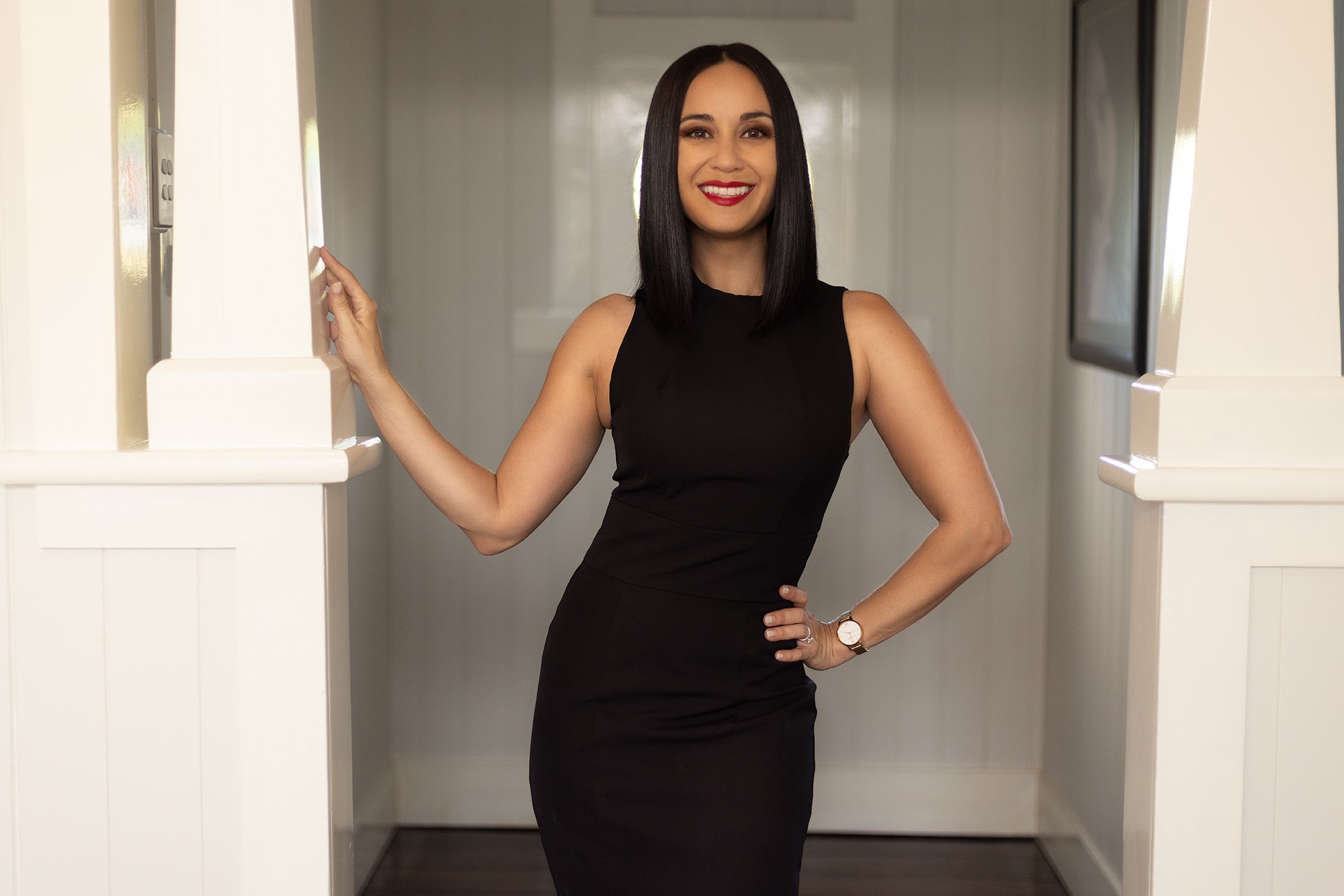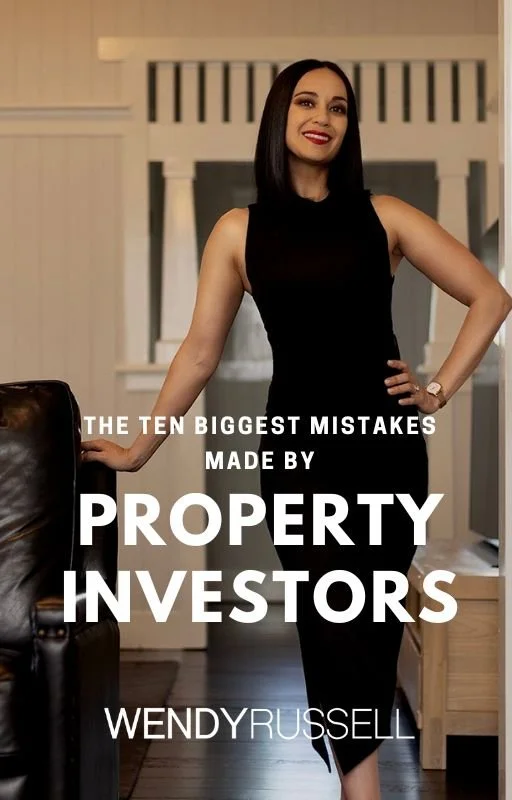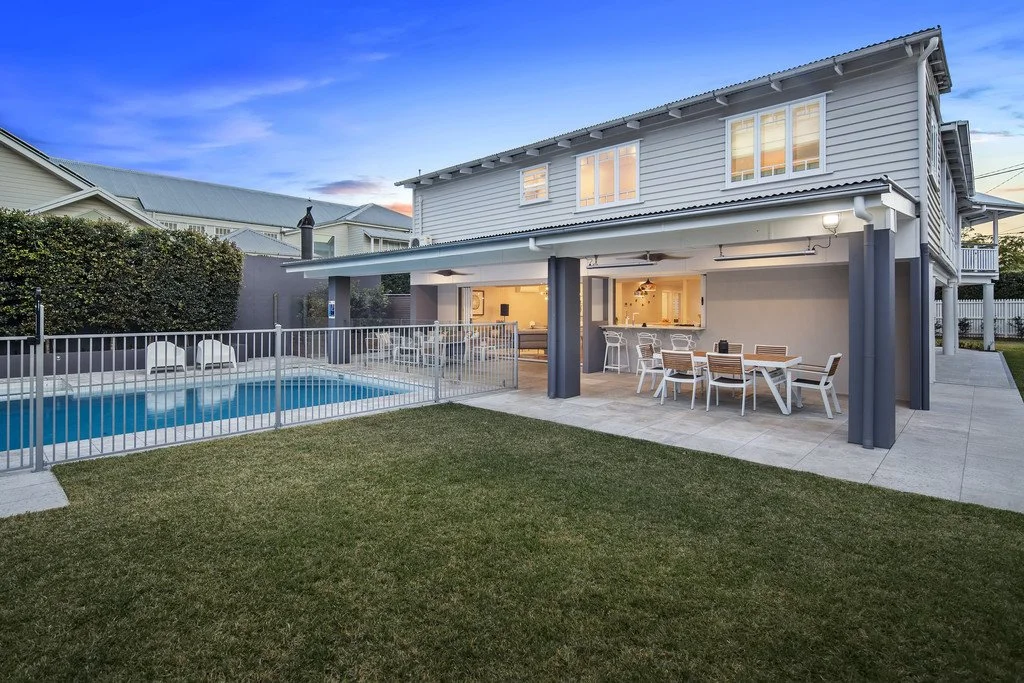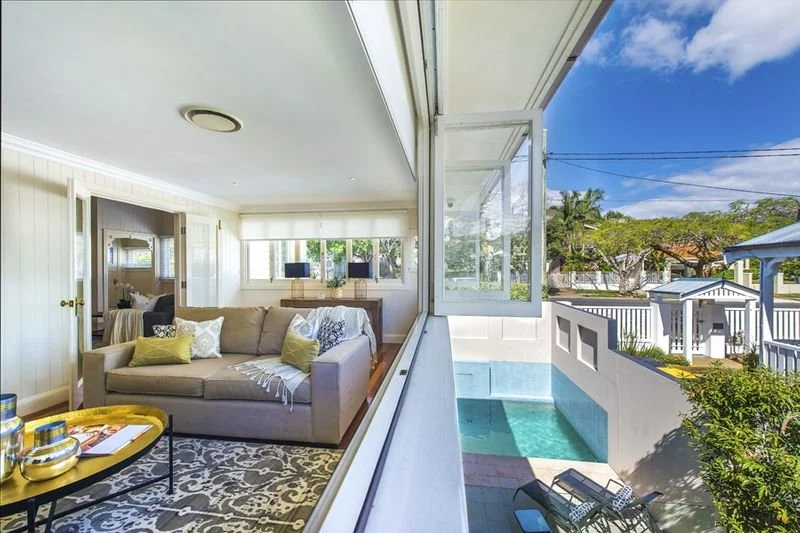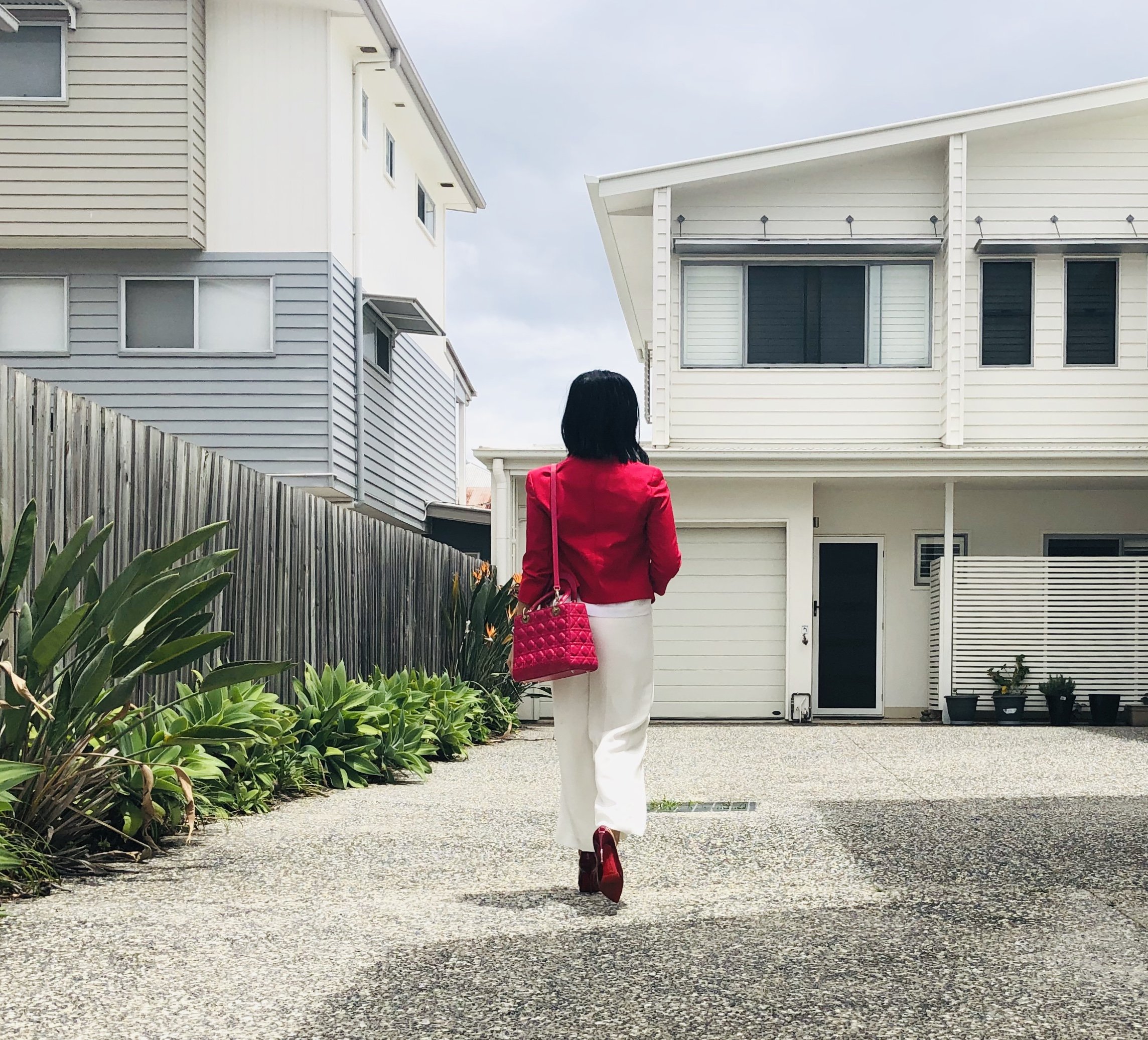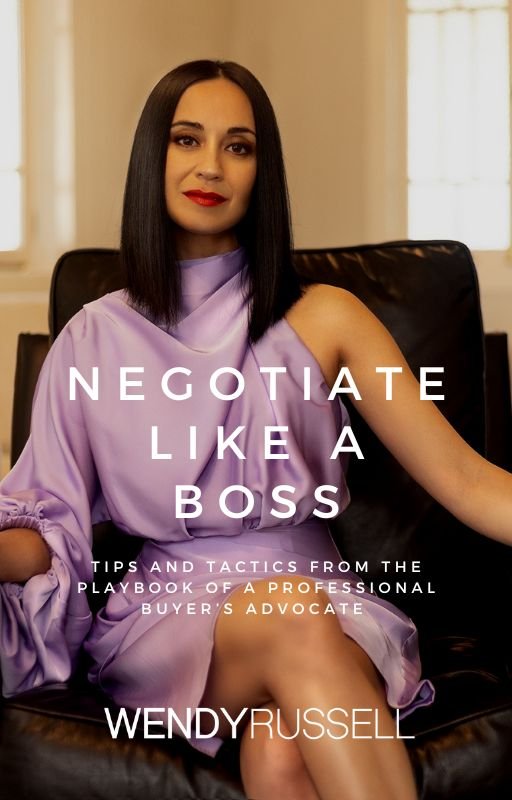5 Properties I’d NEVER Buy As An Investor
Successful property investors don’t just pick ANY property and hope for the best. They look for the Gems — and here’s how you can spot one.
Successful property investors don’t just pick ANY property and hope for the best. They look for the Gems — and here’s how you can spot one.
I purchased this property for one of my investor clients in 2019 for $599,000. It is now worth well over a million dollars.
We all know that friend who has done well in property. In my circles, it’s me. But that’s because after so many years in the game, I know what to look for when it comes to a great property that will outperform the market.
So what actually makes the real difference when you compare a portfolio that does okay to one that hits the equity ball out of the park.
Why is it that some investments do better than others?
Spoiler alert …
It all comes down to property selection and making good decisions when you Buy.
As an Independent Buyer’s Agent, my work involves helping to steer investors on the right path when it comes to property selection and most specifically, pointing out the What, Where, Why and How Much? when it comes to building the portfolio.
So how do I know what to buy?
The value of a Property Mentor.
I was fortunate to have an astute property mentor when I was in my early twenties and this person highlighted the important methodologies when it came to choosing investment properties that were going to do what they’re supposed to - outperform the market.
This serendipitous meeting provided me with a solid foundation for understanding the basic principles of property investment and what to look for when choosing the right properties. Ever since, I’ve been building on that early knowledge through my own experiences, research and watching others go down the property investment path - either successfully or unsuccessfully, and taking specific note of what went right, what went wrong and how they could have bought better.
What they DON’T teach you in school.
It has always amazed me how little the traditional education system provides when it comes to what’s really important in life. Things like choosing a life partner, managing finances and following your passion were never even touched on when I was at school.
Maybe it’s different these days but I’d make a sure fire bet that Buying A Home or Strategic Property Investment is not part of the standard syllabus.
So in that case, many of us were never armed with the knowledge of property investment and therefore rely on “experts” to fill in the blanks. The trouble is, not everyone who claims to be an expert in property, is one.
I never like to call myself an expert but rather, a person who has played the property game for so long now that I’ve acquired a tonne of experience in the space.
With that said, this post is all about sharing some pointers on property portfolio selection. Principles I adopt when separating the dud houses from the ones with real potential.
Rather than tell you what to buy, I’m going to explain why I steer clear of these 5 types of properties. That way, you’ll be able to spot a potential goodie.
Ready?
Properties with THESE features hit my discard box quick.
1. The house with retaining walls.
Retaining walls are like buying that fifth black top you know you’ll never wear because it’s on sale. Totally unnecessary and a waste of money. I have a client who purchased a property a few years before we met and they’re regretting every part of having to maintain retaining walls that are costing them tens of thousands in maintenance. It’s a property expense you just don’t need and for no real benefit to you.
2. Properties with pools.
Aesthetically, pools can really compliment a yard space. In summer, they come in handy for weekend BBQ events and to entertain the kids. That’s about it in my opinion. They’re costly and a lot of work.
Ask anyone who has ever owned a property with a pool. It starts off as a novelty but soon becomes a thorn in your side when you’re having to make multiple trips to the pool shop on your weekends.
If you’re buying your dream home and a pool is part of your wish list then sure, buy a property with a pool and deal with the maintenance. But for an investment, my advice is to steer clear. You’ve just added another expense that you won’t personally benefit from. Remember, you’re not using the pool, your tenants are. And if you think pools add significant value to properties, think again.
3. The house in the noisy location.
Statistically, properties located in busy or noisy locations tend to underperform against those in quieter areas.
Main roads, properties located directly across from schools or sporting facilities, and houses that back onto train lines are all red flag properties in my opinion.
These properties are less desirable to cashed-up buyers and attract less of the buyer pool when you go to sell. In other words, buyers won’t be fighting over your home at auction if it’s located in a noisy location which means these properties tend to under-perform in the capital growth stakes.
4. The property that floods.
Brisbane in particular is renowned for flooding, as are other parts of the Australian landscape. Why buy in a flood zone when there are plenty of other homes on higher ground? This is my rationale when I’m discussing an investment property Brief with a client.
Again, most buyers reject properties with flood overlays (for obvious reasons) so they don’t have the same re-sale potential as other homes. There are exceptions to this rule, but they are rare. Flood overlayed properties also have insurance challenges.
5. The best house in the worst street.
I’m sure you’ve heard of this phrase before. A good rule of thumb for property selection when it comes to investing is buying a property in an area where the majority of neighbouring homes are higher in value.
In other words, if your neighbours are all sitting on $3 Million dollar mansions and you’re the $1 Million dollar man, you’re in the right company!
If most properties in a certain area are fetching say 10-20% higher than the one you are considering buying, this provides great scope for your property to be “pulled up” as I like to call it.
I like to buy above the average house price of a suburb.
So if the property you’re considering is worth say $1,100,000 and the average for the suburb is $1,500,000 - that is a green flag to shortlist this property as a potential for investment.
On the flip side, if the property you’re considering is well above the average house price for the area, there may be limited potential for it to grow in value. Remember, the bottom of the market always moves first.
We’ve only scratched the surface.
There is so much to learn about property selection when it comes to investing and I have merely scratched the surface in this post.
If you’re curious to understand what I do recommend investors buy, you can BOOK A 1:1 SESSION with me and I’ll help you work through a personalised property plan.
Keep an eye out for my Investors Masterclass which is coming soon. This is where I deep dive into my process and openly share my knowledge in this space.
One of the key takeaways I teach (amongst other important points) is how to decipher unimproved capital value - why it’s so important and what the minimum ratio should be when it comes shortlisting a property or passing it up.
What Is Unimproved Capital Value or UCV?
Have you heard of Unimproved Capital Value? Here’s why you need to understand what it is, why it matters and how it can lead to your investment property outperforming the rest.
What is UCV and why is it so important when we assess property? Particularly that of property we are deciding to invest in.
Performing thorough Due Diligence on a property is something ALL buyers should do before they commit to a purchase, but it’s often this step is skipped, especially in novice buyers who probably don’t even know what to do, or even look for when it comes to property Due Diligence.
What is Due Diligence — when it come to property?
Let me explain in simple terms.
In essence, undertaking what we refer to as Due Diligence is the process of investigating or “looking into” certain aspects of a property, before committing to buy it.
It is a process by which a Buyer performs searches, checks the accuracy of information provided by the selling agent, and in general, investigates the property at hand, following which an opinion can be formed as to whether the property is suitable (for the buyer) to Buy.
Essentially, you are putting a property under the microscope, and “picking it to bits”, as I like to say, BEFORE you make a buying decision.
You are playing the role of investigator and finding out as much information about this property so your decision to buy is an informed one.
For now, let’s look at one of the most critical pieces of information you should look into when buying a property – it’s UCV, or Unimproved Capital Value.
WHAT IS A PROPERTY’S UNIMPROVED CAPITAL VALUE OR UCV?
The Unimproved Capital Value, or UCV as abbreviated, is the figure that is assigned to the value of JUST the land ALONE, without the dwelling (house or building) on it.
Where can I find the UCV for a property?
The UCV figure can be located on the rates notice for the property, and it is typically the valuation amount used to determine the council rates amount.
But when it comes to property Due Diligence, and interpreting this figure further, here’s what I like to consider…
Firstly, I like to look for properties where the UCV is relatively HIGH in comparison to the OVERALL estimated value or worth of the whole property combined (house and the land together).
UCV Working Example.
As a simple example, if the UCV is $400,000 and the estimated property value (the house and land combined) is around $550,000, this means, in theory, you are buying the house itself (or the building / dwelling) for $150,000.
Going one step further, a good property purchase is one where you are buying BELOW what we call INTRINSIC VALUE (or replacement cost) for the property. That is, the cost to replace the building should it be destroyed.
This means that the amount you pay for the property is LESS than what it would cost to replace or rebuild the dwelling on the land.
Let me explain using another example.
Under the previous working scenario above, let’s say you purchase a property for $550,000 — and the UCV (land value) is $400,000.
To replace the house or to build new, the cost of the new dwelling could be between $300,000 and $350,000, so you have effectively purchased the property for below replacement cost.
The reason I like to see the UCV high in comparison to the overall purchase price of the property, is that the land component APPRECIATES, whilst the house component DEPRECIATES.
Effectively, a higher portion of your investment (the land component) is appreciating, whilst the lower component (the house or dwelling) is depreciating.
Capital growth in action.
If you’re an investor, this is the idea scenario as it’s the Land that goes up in value over time.
This is where you see the magic of capital growth in action, and if you’ve bought in an area where the UCV of the property is proportionately higher than the overall purchase price of the property, you’ll likely see an outperformance in capital growth for this particular property …
Whereas if you were to buy a property where the UCV was proportionately LOWER, the capital growth will likely be less.
Can you see why the UCV is so important when we’re putting a property under the spotlight?
You could argue it is a good signpost when it comes to assessing the potential for capital growth.
There are, of course, several other factors that come into play when it comes to capital growth, but this is a good place to start if you’re investing in property and looking for strong capital gains.
Why You (Really) Can’t Find That Perfect Property
Some buyers spend YEARS looking for the perfect home and today I’m sharing the 4 surprising scenarios that hold them back every time.
It’s been months, maybe even YEARS and you STILL haven’t found The One.
And if you see another smiling couple standing in front of a sold sign on your instagram feed it’s going to send you over the edge!
Here’s what might be going on that’s keeping you stuck…
Wendy … How do we end this house hunting saga once and for all?
It’s no secret that many buyers struggle to get into the market for one reason or another. But here’s the truth spoken by someone who has been house-hunting for literally decades! I’m about to reveal why you really can’t seem to get off the open-house merry-go-round. It all boils down to these four (4) things I’m about to share.
So, if you want to know the truth… read on.
1. You’re not seeing EVERYTHING that is for sale.
You haven’t found The One because you’re not seeing the entire market. I’m talking about the off-market and secret listings that are reserved for only the well-connected industry professionals, such as myself. In real estate, it’s Who you know that can make all the difference to the success of your house-hunt. More times than not, it’s the Buyer’s Agents who get first access to the very best properties so if you’re not partnered up with a well-connected on the ground local agent, you’re probably not seeing all there is to see when it comes to the available stock (properties on the market).
2. You Lack CLARITY and so your Negotiation Game is all over the place.
When it comes to making offers, you don’t know where to begin, when to push, pull back or how to go in hard when it counts. This is because you don’t really trust yourself to do what’s best and you’re afraid you’ll overpay, so instead, you back off altogether. A quick lesson in Property Negotiation 101 can often help give you the confidence you need to secure the property and do what’s best in those moments where you’re back and forth between offers. My book – Negotiate Like A Boss offers a simple and straightforward step by step guide for buyers who want to brush up on their negotiation skills. If you take-away and apply just ONE golden tip from my playbook, I guarantee it’s going to bring you a step closer to owning your new property.
3. You’re TIME-POOR so the search never really gets off the ground.
You are busy and simply don’t have enough of you to go around to fully commit to the house hunting process. I get it! We’re all busy and live in a constant state of juggling priorities. If you’ve even begun your search, it’s probably feeling like a stop / start journey but with no real traction. Otherwise, you’ve just put it off altogether in the “too hard, I’ll deal with it later” basket. Since you don’t have the time resources to devote and you haven’t yet bit the bullet and engaged a professional to represent you, you’re stuck in procrastination mode and so nothing moves forward. Sadly, you’re no closer to your new home … and then the cycle starts all over again the moment you get a window of time or the pain of staying stagnant intensifies.
4. You don't have the right CONNECTIONS.
Are you getting the heads up to off-market properties and first in the door, private walk-throughs to new listings like professional buyer’s agents do?
If the answer is No, I’m afraid you’re just not a priority Buyer to the real estate agents – and I hate to break it to you, but these are the people who have the power to make or break your new home purchase.
When you’ve worked in the industry as long as I have, you get to know the real estate agents – well.
Buyer’s Agents like me build up a reputation as a “qualified” Buyer in the eyes of selling agents and this is why I am able to have those off-the-record conversations that regular buyers simply can’t have with selling agents.
They just don’t trust you enough to divulge the juicy details … information that often leads to successful negotiations.
Being well-connected gives you a huge advantage and partnering with an expert allows you to tap into the networks they have built over many years.
So there you have it. The cold hard truth about WHY you haven’t found that perfect property … Yet.
Don’t stay stuck — Help is here.
Help is available if you need it. Let me connect you to a buyer’s advocate in your area who can do the heavy lifting for you and get you in, once and for all!
MEET THE WRITER
Wendy Russell is an independent buyer’s advocate, investor and self-made businesswoman with a knack for spotting a great property.



